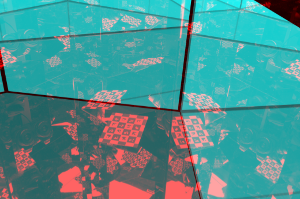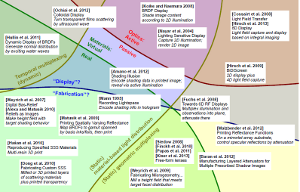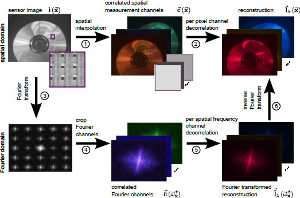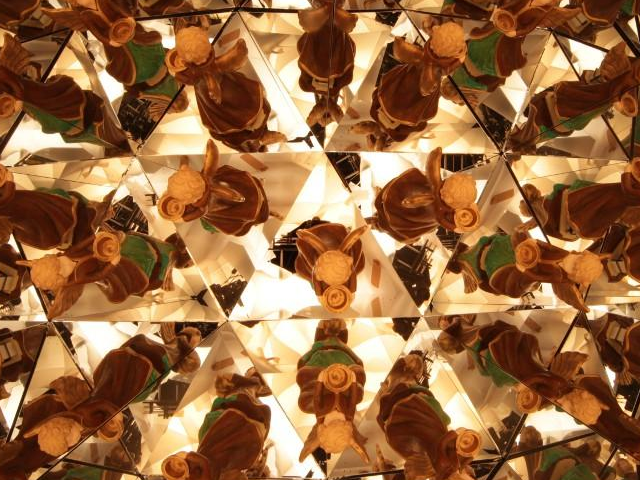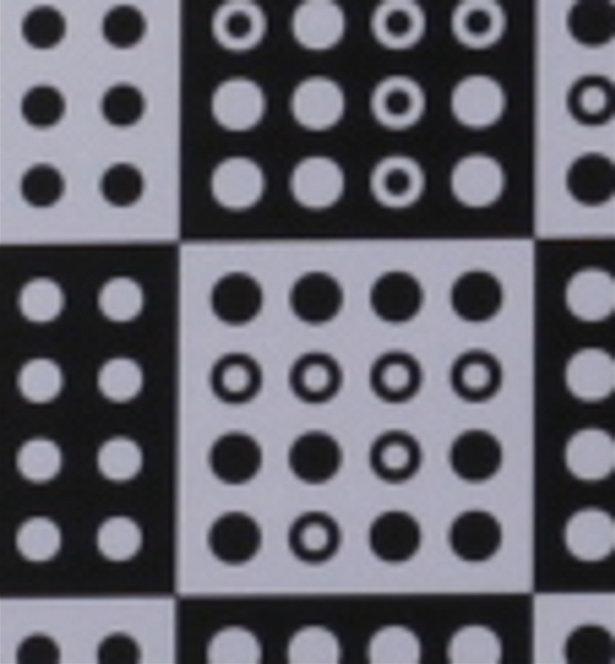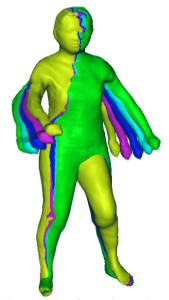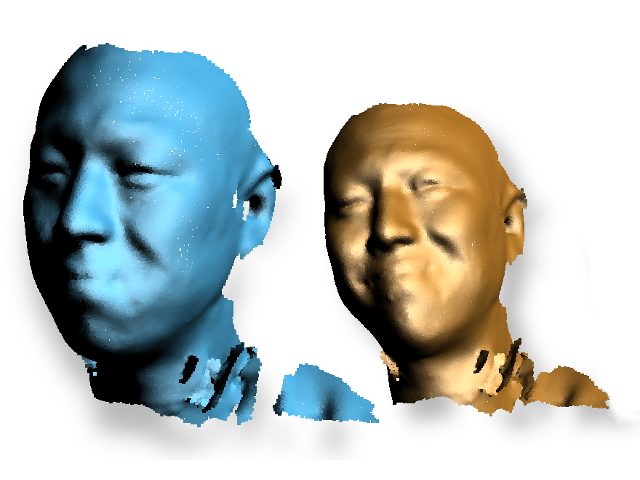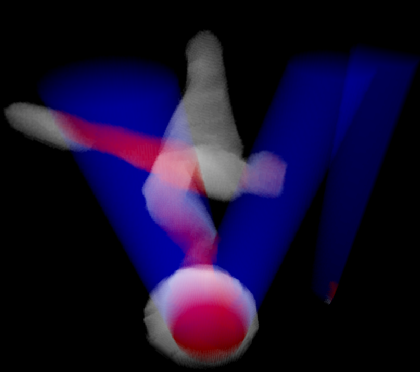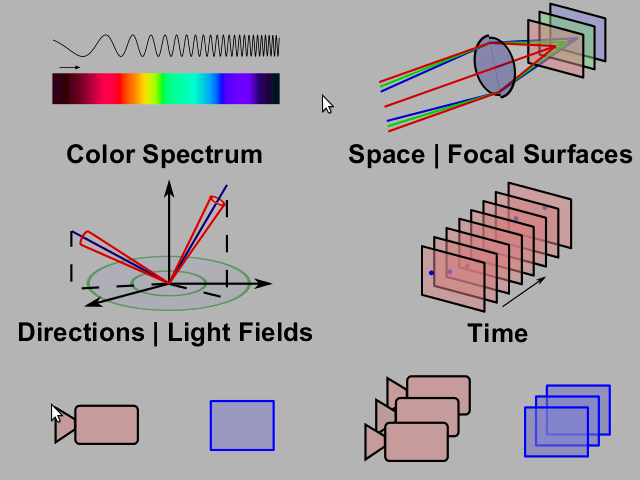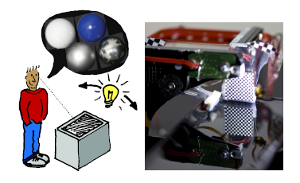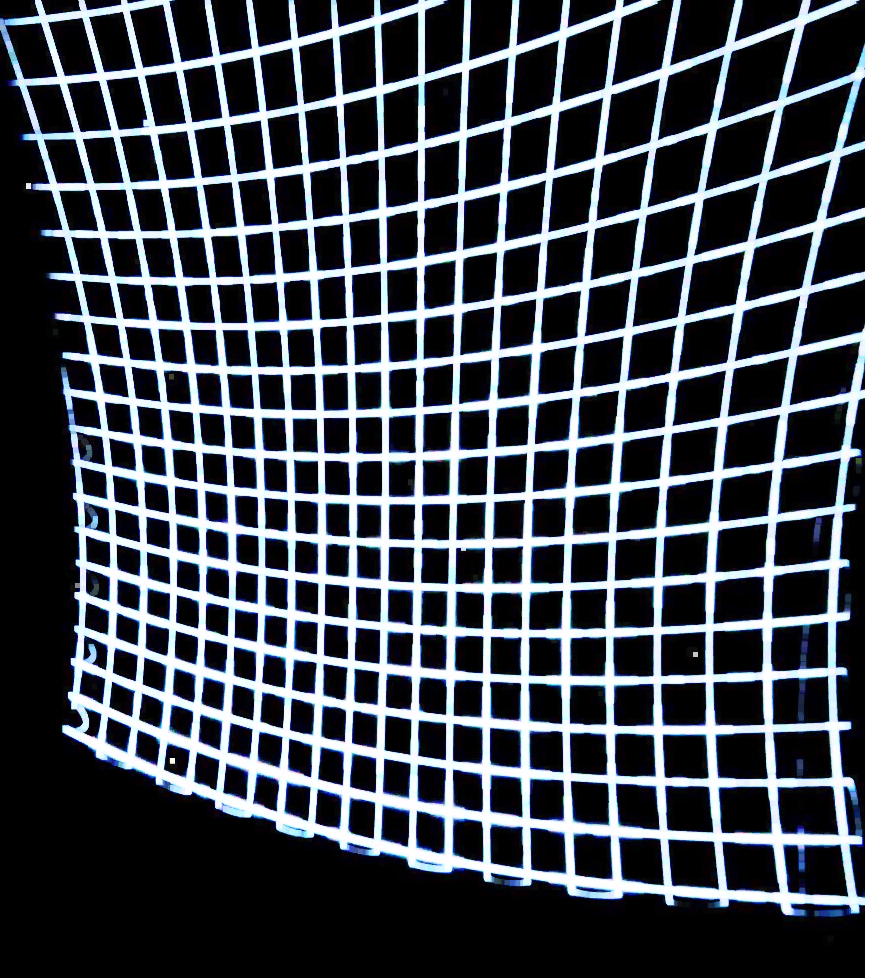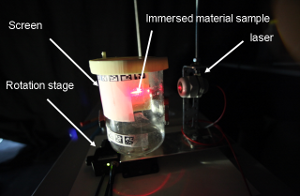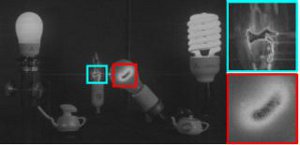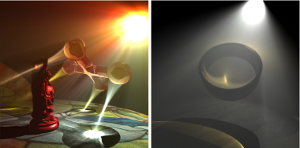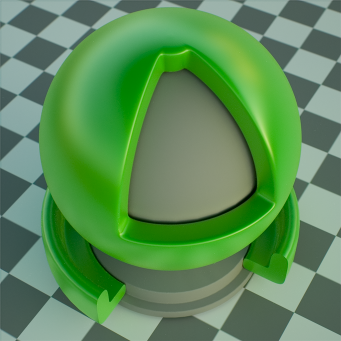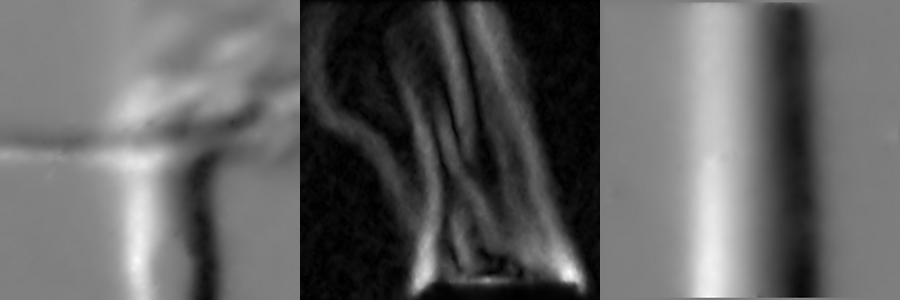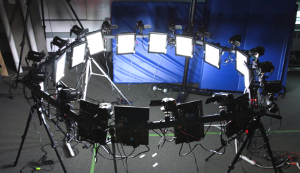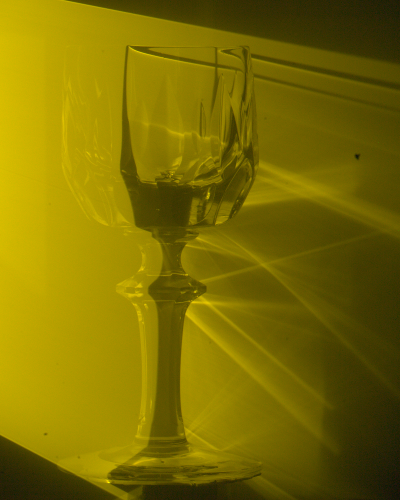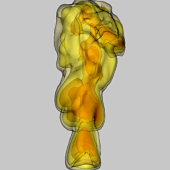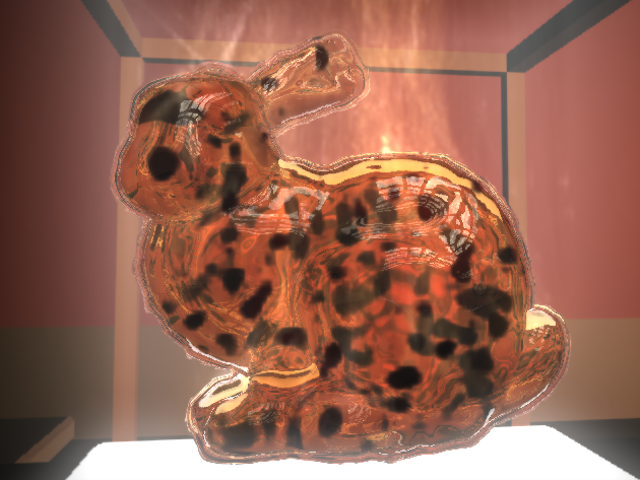Measuring BRDFs of Immersed Materials
We investigate the effect of immersing real-world materials
into media of different refractive indices. We show, that
only some materials follow the Fresnel-governed
behaviour. In reality, many materials exhibit unexpected
effects such as stronger localized highlights or a
significant increase in the glossy reflection due to
microgeometry. In this paper, we propose a new measurement
technique that allows for measuring the BRDFs of materials
that are immersed into different media.
Projects
Derek Bradley, Bradley Atcheson, Ivo Ihrke, Wolfgang Heidrich
In: Proceedings of PROCAMS 2009 (2nd best paper).
Go to project listIn: Proceedings of PROCAMS 2009 (2nd best paper).
Abstract
Two major obstacles to the use of consumer camcorders in computer vision applications are the lack of synchronization hardware, and the use of a "rolling" shutter, which introduces a temporal shear in the video volume. We present two simple approaches for solving both the rolling shutter shear and the synchronization problem at the same time. The first approach is based on strobe illumination, while the second employs a subframe warp along optical flow vectors. In our experiments we have used the proposed methods to effectively remove temporal shear, and synchronize up to 16 consumer-grade camcorders in multiple geometric configurations.
Project Page Bibtex
@INPROCEEDINGS{Bradley:2009,
author = {Derek Bradley and Bradley Atcheson and Ivo Ihrke and Wolfgang Heidrich},
title = {Synchronization and Rolling Shutter Compensation for Consumer Video Camera Arrays},
journal = {International Workshop on Projector-Camera Systems (PROCAMS 2009)},
year = {2009},
}
author = {Derek Bradley and Bradley Atcheson and Ivo Ihrke and Wolfgang Heidrich},
title = {Synchronization and Rolling Shutter Compensation for Consumer Video Camera Arrays},
journal = {International Workshop on Projector-Camera Systems (PROCAMS 2009)},
year = {2009},
}



